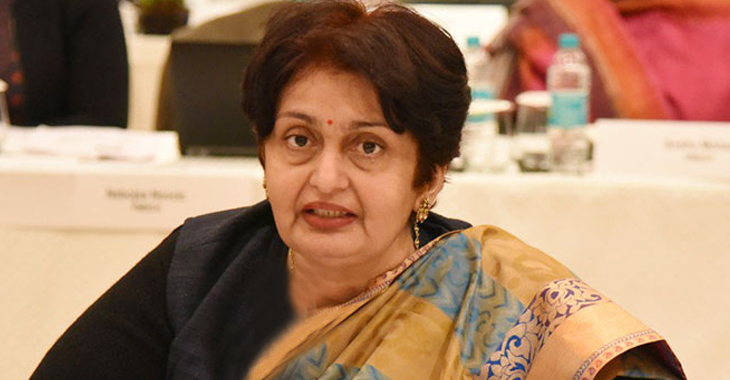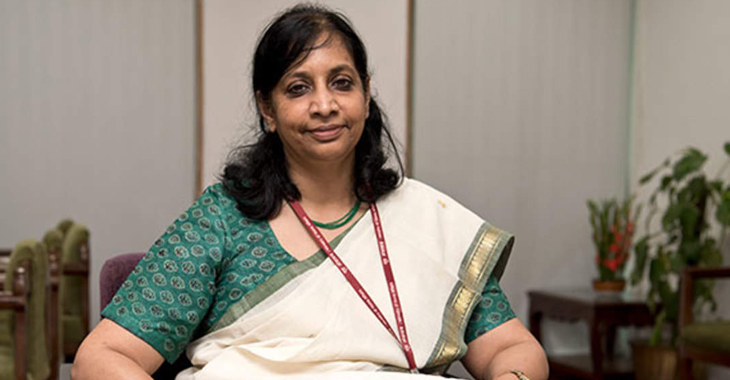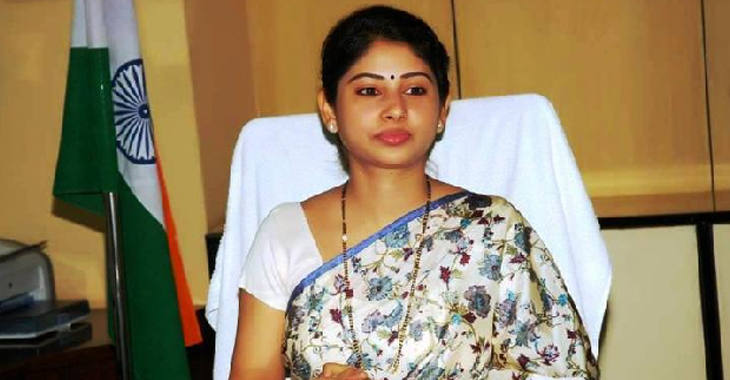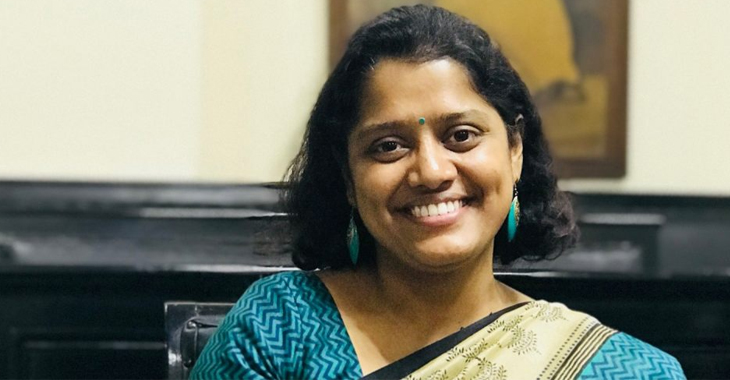5 Most Influential Female IAS Officers in India
Many female IAS officers in India have passed the most difficult examination and become role models for aspiring female IAS officers. The Union Public Service Commission is always going above and beyond to get more and more women to take the UPSC examination. UPSC also waives the application fee for the Prelims and Mains exams in an effort to encourage female students.
According to a report released by the Trivedi Centre for Political Data, women made up only 13% of the 11,569 IAS officers recruited between 1951 and 2020, or just one-third of all IAS recruits in the nation.
The effect that family expectations have on women, including IAS officers, is one factor that is frequently overlooked. Several women officers have noted that they bear a double burden in juggling their roles as wives and mothers with their professional obligations. Their careers may suffer as a result of this added pressure. As a result, instead of choosing jobs that might demand a larger commitment and time commitment, many female officers prefer to look for “softer postings” that provide more flexibility and free time.
Female IAS officers are not restricted by a specific standard dress code when it comes to attire. On official occasions, they must wear formal attire; on other business days or at other events, they may wear casual clothes.
1. Anna Rajam Malhotra

Anna Rajam Malhotra, who was a part of the 1951 batch, is the first female IAS officer in India. For her exceptional contributions, she was given the coveted Padma Bhushan award.She was particularly important in the establishment of Nhava Sheva, the first computerized port in India, which is situated in Mumbai.
She also has the distinction of being the first Malayali woman to work in the central government as a secretary.Her significant and wide-ranging contributions have had a long-lasting effect on India’s administrative environment..
She made a major contribution when she founded the Jawaharlal Nehru Port Trust (JNPT), which is situated close to Mumbai. As part of her deputation in the Central government, Anna Rajam Malhotra took on the role of chairperson during the project’s execution.
Padma Bhushan bestowed an honor upon Anna.She is the first Malayali woman to hold a secretarial position in the central government and was instrumental in creating Nhava Sheva, Mumbai, the first computerized port in India. Working under seven chief ministers, Anna Rajam was intimately connected to both Indira Gandhi and Rajiv Gandhi during the Asiad Project.
2. Preeti Sudan

The accomplished female IAS officer Preeti Sudan, a 1983 batch member, was trained in the Andhra cadre. She held important positions at the state and federal levels during her career, including Joint Secretary in the Ministry of Defense and Secretary of the Department of Food and Public Distribution, where she oversaw duties in disaster management and tourism.
Preeti Sudan held positions in the government as well as a consultant position at the World Bank. Notably, she was instrumental in assisting in the creation and execution of important programs such as the National Health Policy and the Ayushman Bharat Yojana, a government initiative that aims to give free secondary and tertiary health coverage to 40% of India’s most vulnerable citizens.
The goal of these initiatives is to provide medical assistance to the nation’s underprivileged and destitute citizens. IAS officer Preeti Sudan, a woman, was trained in the Andhra cadre and belongs to the 1983 batch. She held a number of significant roles at the state and federal levels, including posts in disaster management and tourism as well as Joint Secretary in the Ministry of Defense. Preeti also held the position of Secretary of the Department of Food and Public Distribution in the past.
Initiating two significant national flagship programs, Beti Bachao, Beti Padhao, and Ayushman Bharat, in addition to legislation on the National Medical Commission, Allied Health Professionals Commission, and the ban on e-cigarettes, are among her noteworthy contributions.
She was a consultant at the World Bank.Preeti Sudan backed the development and execution of the National Health Policy, or Ayushman Bharat Yojana, a government initiative that intends to give the bottom 40% of India’s impoverished and defenseless citizens free secondary and tertiary health coverage.
3. Aruna Sundararajan

Ms. Sundararajan is another high-ranking official in the Indian Administrative Service. She is a former female IAS officer from the Kerala Cadre’s 1982 batch. During her life, Aruna is credited with obtaining numerous significant roles, one of which is Secretary of the Ministry of Electronics and Information Technology.
She had conceived and led the Akshaya project, which began in the rural district of Malappuram, Kerala, India, and later spread to the entire state, as the state’s first IT Secretary. The largest e-literacy initiative of its kind, Akshaya trained over a million people in fundamental digital skills through a campaign-style approach. Additionally, Akshaya sparked the emergence of one of the world’s biggest known rural wireless networks powered by Internet Protocol (IP).
In her capacity as Chair of the Telecom Regulatory Authority of India (TRAI), she oversaw the reshaping of policies pertaining to the telecom industry. Ms. Sundararajan’s contributions to the field of e-governance have had a major impact on India’s digital revolution.
In 2009, India Today recognized Ms. Sundararajanan as one of the top professional women achievers; in August of 2012, Forbes Business Magazine did the same. Additionally, the US-India Business Council presented her with the 2017 USIBC Transformative Leadership Award in recognition of her outstanding public service and dedication to advancing U.S.-India cooperation and Digital India.
4. Smita Sabharwal

Smita Sabharwal is reportedly the youngest woman to be appointed as an IAS officer in India. She is also, remarkably, the most recent officer to be appointed to a post in the Chief Minister’s office. IAS officer Smita Sabharwal, a woman, was assigned to the Telangana cadre in the 2001 batch. She is referred to as The People’s Officer because she involves people in solving problems that affect citizens. She was appointed to the Chief Minister’s Office as the first female IAS Officer.
The first female IAS officer to hold the office of chief minister was Smita Sabharwal. She currently serves as both the secretary of the Rural Water Supply and Sanitation Department (Mission Bhagiratha Department) and the secretary to the Telangana Chief Minister.
While serving as a municipal commissioner in Warangal, she launched the “Fund your City” program, which allowed for the creation of numerous public utilities through public-private partnerships (PPP), including traffic junctions, foot overbridges, bus stops, and parks. She later worked in Visakhapatnam as the Deputy Commissioner of Commercial Taxes.
5. Shweta Agarwal

Shweta Agarwal is regarded as the most creative female IAS officer, with ideas that are wholly original. She was a West Bengali and a member of the 2016 batch. She was in favor of the implementation of various programs, including the Mukhya Mantri Jal Swavlamban Abhiyan and the Swachh Bharat Abhiyan.
She attended the St. Joseph Convent School and finished her graduate studies in economics at Kolkata’s St. Xavier’s College. She received a first-class diploma. Even at her graduation, Sweta placed in the top 15 positions. She then pursued an MBA post-graduation and was able to secure a job with Deloitte in the corporate sector.
Because of her diligence, the daughter of a grocery seller passed the UPSC Civil Services exam and went on to become an IAS officer. Ms. Agarwal wanted to give it another go even though she had passed the exam on her first attempt in 2014 with an AIR-497, which allowed her to join the Indian Revenue Service. After her second attempt in 2015, she was able to obtain her AIR-141, allowing her to realize her long-held dream of joining the IPS and dressing in khaki. Though content, her focus was on IAS. She made the decision to try again as a result. Shweta Agarwal scored 19th in the 2016 UPSC Civil Services Exam.
She was instrumental in the successful implementation of the latter plan, which helped to preserve water in the State. Shweta Agarwal received recognition and commendation for her excellent work, as well as the Chief Minister’s Award for Excellence in Public Service.
Read More

